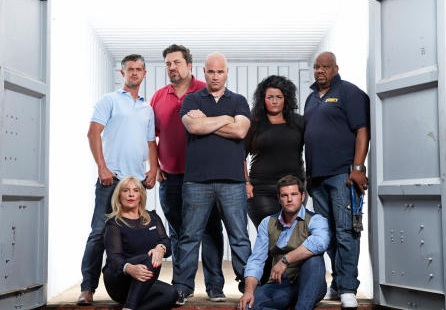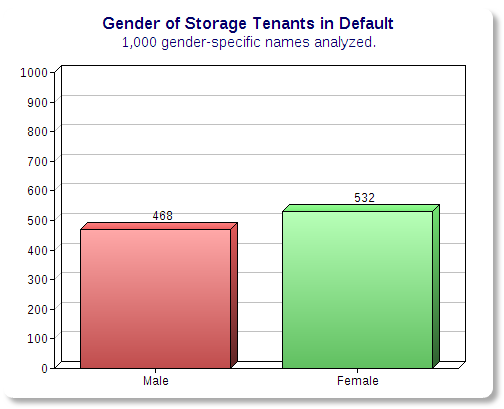What is a Storage Auction?
Storage auctions occur when a self-storage facility sells the contents of an abandoned unit in order to recover the cost of missed payments. Some people use these auctions as a way to gain items at a low cost, thus enabling them to sell the discovered contents at a profit.
In more recent years, thanks to the popularity of storage auction reality TV shows, storage auctions have become more common and diverse. Some groups hold auctions for charities, and some people choose to auction the contents of their own storage units for profit or to make up a debt with their storage facility.
History
Self-storage facilities are a relatively new invention, first appearing around the 1960s. Since that time, storage had grown substantially in popularity, with facility numbers exploding over the past 35 years. There are more than 30,000 storage facility companies operating in the U.S., most with more than one facility.
Self-storage facilities are used by people who are moving or need more space to store their belongings. Many of the people renting units are undergoing periods of transition, including college students, people getting divorced, and those moving from their homes.
The transient nature of self-storage means that units often go neglected due to financial circumstances, forgetfulness or simple abandonment. When a storage user is unable to pay his rent or abandons the unit, the account goes into default, and the facility owner must recover the lost funds. In order to do this, the facility will run an auction to sell off the contents of the abandoned unit.
Storage Auction TV Shows
The self-storage industry grew tremendously since the 1960s. By 2010, 1 in 10 people rented storage units. Up to that point, however, storage auctions themselves were relatively obscure. This began to change in 2010 when two hit reality TV shows were aired: Storage Wars on A&E and Auction Hunters on Spike.
These shows follow bidders at auctions, showing the valuable finds and profits that they make from them. Despite the controversies surrounding the shows, including allegations that they are staged, storage auction reality shows became very popular and quickly gained a fan following.
In response, numerous other auction shows and spin-offs have been released, including Storage hunters, Storage Wars: Texas, Storage Wars: New York, Storage Wars: Canada, Storage Hunters: UK and Auction Kings.
The effect of these programs was an increased awareness in storage auctions and unprecedented growth in the industry. Approximately 80,000 storage auctions are held per year, and a cottage industry has grown up around them including books on auction hunting, online auction listings, and numerous websites devoted to the topic.
Rules & Regulations
Storage auctions are run according to particular rules. Some are established by the storage facility itself while others are state-mandated laws. Recently, thanks to technological advances within the storage business, some of these laws have been changed:
1 – Before auctioning a unit, the facility must make a best faith effort to contact the owner and settle the debt. This process usually takes up to three months and includes phone calls and certified letters being sent to the tenant.
2 – All auctions must be announced publicly and held in a public location. In other words, the unit’s contents cannot be seized by the facility owner or sold privately to another individual. Announcements must be published in a newspaper or, in some states, posted online.
3 – No one, including the facility owner, may enter the unit or disturb its contents until after the unit is sold. Bidders can look at a unit only from the outside prior to the sale. However, the facility owner can cut off the lock, take photographs of the unit and seal it again with a new lock prior to the sale.
4 – Once a unit has been sold, the new owner generally has between 24 and 48 hours to empty it of its contents and sweep it clean. Otherwise, the new owner must rent out the unit himself.
5 – In most states, funds earned through an auction that exceed the balance owed to the facility must be returned to the unit’s original tenant. If this is impossible, the funds may be released into the state’s escheatable account, or the facility may hold them for a specific time period before being able to use them.
It’s worth noting that these rules apply only to lien auctions. If a different type of sale is being held in an auction format, such as a charity sale or private owner sale out of a storage facility, these lien laws do not apply. It’s up to the person making the sale to come up with any additional rules to govern that sale.
Types of Auction
Although live auctions are the most popular way of selling the contents of a storage unit, there are several options for holding a sale.
Live Auction
In a live auction, a professional auctioneer holds the sale. Bidders are given a few minutes to look at the unit from outside before the auctioneer starts the bidding. The starting bid will depend on the apparent value of the unit from the auctioneer’s cursory glance, and it will go up as attendees raise the bid. Once bidding has slowed, the highest bidder wins the auction.
Live auctions are the most exciting for participants and viewers, making this the format popularized through reality television. Most facilities will wait until they have several units to sell and auction them all on the same day for the convenience of the auctioneer and to draw a bigger crowd of bidders since a larger crowd generally translates to higher bids.
Sealed Bid
In a sealed bid auction, the contents of a unit are disclosed and bidders place their bids in a sealed envelope. Each person makes just one bid, and the highest bidder wins the unit. These are also sometimes called silent auctions.
In some cases, a facility will accept sealed bids in advance of a live auction. These are considered alongside the bids made at the auction itself.
Silent auctions are fairly rare among storage facilities, but they are sometimes held if a unit seems particularly valuable or if the facility wants to keep a sale simple or has just one or two units to sell.
Online Auction
Online or virtual storage auctions are increasingly popular. These take place over the Internet, much like sales on eBay. The unit is posted with photographs and a description, and buyers place their bids online from their computers or smart phones. At the end of the designated auction period, the sale is closed and the highest bidder wins the unit.
There are several virtual storage auction websites to facilitate these sales. Some charge fees to both buyers and sellers, while some charge just one or the other or are free to use.
Aside from storage facility owners, private sellers can put their units for sale online through a virtual auction site.
Charity Auction
In order to capitalize on the increasing popularity and awareness of storage auctions, some charities have begun using the storage auction format for their fundraisers.
Generally, these auctions are for units that have been filled with donations. This makes it more likely to find valuable items inside, and bidding will usually go higher. Some charities will hold additional events alongside the auction in order to attract visitors and boost the fundraising.
Want to add your insight to this article? Leave your interesting and creative responses in the comments section below.











